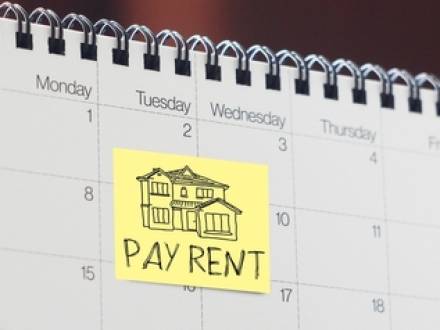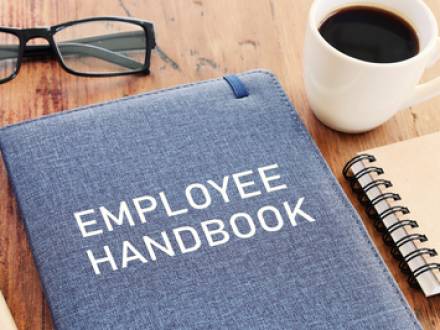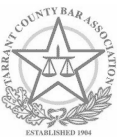Recent Blog Posts
Should You Ever Buy Landlocked Property in Texas?
 The price is right, the location is perfect, and the view is breathtaking. You found the real estate you have been searching for, but there is one big problem: there is no legal access. In the state of Texas, a piece of land with no public road or legal easement is known as landlocked property.
The price is right, the location is perfect, and the view is breathtaking. You found the real estate you have been searching for, but there is one big problem: there is no legal access. In the state of Texas, a piece of land with no public road or legal easement is known as landlocked property.
Landlocked properties can quickly become a legal and logistical headache. If you are eyeing your dream property (which also happens to be landlocked), there are questions you need to have answered before making an offer. Can you build on the property? How will you legally access it? Is there a legal path forward?
The land may be surrounded by privately owned land, and it is more common than you might think, especially in rural or subdivided areas without updated surveys. Since the only way to access the land is through a neighbor’s property, you need to know your legal options before you fall in love. An experienced Tarrant County, TX real estate attorney can offer you solutions to this problem, helping you acquire the property you dreamed of.
Can You Disinherit an Adult Child in Texas – And Should You?
 Most adults put off estate planning as long as they possibly can. There are many reasons: not enough time, not enough assets, or a fear of facing one’s own mortality. In some cases, estate planning is delayed because a parent is struggling with the prospect of disinheriting an adult child. It is rarely an easy decision to disinherit a child, regardless of his or her age.
Most adults put off estate planning as long as they possibly can. There are many reasons: not enough time, not enough assets, or a fear of facing one’s own mortality. In some cases, estate planning is delayed because a parent is struggling with the prospect of disinheriting an adult child. It is rarely an easy decision to disinherit a child, regardless of his or her age.
The decision to disinherit could be due to estrangement, financial irresponsibility, a drug or alcohol problem, an untrustworthy spouse, or another type of family conflict. While some states have laws protecting children from being unintentionally omitted from a will, there are no states that outright prevent a parent from disinheriting an adult child, provided it is done properly. Of course, this assumes that a will or trust is in place.
A person who dies without a will is said to have died intestate, resulting in Texas state intestacy laws (Estates Code, Title 2, 201.001) dictating how the estate is distributed. There are specific legal requirements for disinheritance in Texas that must be followed, and it is also advisable to consider the emotional and practical implications of disinheriting an adult child. If you are considering disinheriting an adult child, it is extremely important that you speak to a knowledgeable Hood County, TX estate planning attorney.
How to Handle Texas Business Partner Disputes
 Most business partnerships begin with shared dreams and goals, yet over time, disagreements between partners can arise. Whether over money, business responsibilities, or the direction of the company, shared goals can often give rise to disputes. Some of these disputes can be resolved, while others can quickly escalate into legal battles if not addressed strategically.
Most business partnerships begin with shared dreams and goals, yet over time, disagreements between partners can arise. Whether over money, business responsibilities, or the direction of the company, shared goals can often give rise to disputes. Some of these disputes can be resolved, while others can quickly escalate into legal battles if not addressed strategically.
If you are struggling with your Texas partnership, knowing your legal options is crucial to preserving your business and protecting your interests. Having a Hill County, TX business law attorney looking out for those business interests can truly make a difference in business partner disputes.
What Are the Most Common Causes of Partnership Disputes?
There are many different reasons for partnership disputes, including the following:
How Can Commercial Landlords Protect Themselves in Texas?
 Owning commercial real estate in Texas can be profitable, but it comes with significant risks. From tenant defaults to property damage, commercial landlords face challenges that can quickly turn profitable investments into financial nightmares. Understanding Texas-specific protections and best practices helps safeguard your investment and minimize costly surprises. An experienced Hood County, TX commercial real estate attorney can advise you on common ways to protect your commercial property.
Owning commercial real estate in Texas can be profitable, but it comes with significant risks. From tenant defaults to property damage, commercial landlords face challenges that can quickly turn profitable investments into financial nightmares. Understanding Texas-specific protections and best practices helps safeguard your investment and minimize costly surprises. An experienced Hood County, TX commercial real estate attorney can advise you on common ways to protect your commercial property.
Tips for Texas Commercial Landlords
Sign Strong Lease Agreements
Your commercial lease agreement serves as your primary protection against potential issues. Include specific rent payment dates, late fees, default procedures, and tenant responsibilities for maintenance and repairs, and avoid generic or template agreements. Texas allows landlords significant flexibility in lease terms, so take advantage by including personal guarantees from business owners, especially for new or small businesses. These guarantees make individual owners personally responsible for lease obligations even if their business fails.
Strategies to Minimize Commercial Real Estate Zoning Issues
 Navigating zoning laws can be one of the most challenging aspects of Texas commercial real estate deals. Whether you are launching a new business, expanding, or investing in development, zoning rules can complicate commercial real estate projects. For instance, in Texas there are different types of commercial zoning uses. As a result, if a property is zoned as light commercial but you are developing a large shopping center, you may run into issues if you simply assume a commercially zoned area is appropriate without checking into the specifics. For this reason, speaking to an experienced Tarrant County, TX real estate attorney who can check the specific zoning designation for your property is key.
Navigating zoning laws can be one of the most challenging aspects of Texas commercial real estate deals. Whether you are launching a new business, expanding, or investing in development, zoning rules can complicate commercial real estate projects. For instance, in Texas there are different types of commercial zoning uses. As a result, if a property is zoned as light commercial but you are developing a large shopping center, you may run into issues if you simply assume a commercially zoned area is appropriate without checking into the specifics. For this reason, speaking to an experienced Tarrant County, TX real estate attorney who can check the specific zoning designation for your property is key.
How Can You Avoid Commercial Real Estate Zoning Law Issues?
Do Your Due Diligence Early
What Can a Texas Landlord Do If a Tenant Stops Paying Rent?
 Renting your property for income can be financially rewarding. If your tenant stops paying rent or threatens to do so, that can harm your income to the point where you could lose thousands of dollars a month. It is also frustrating, unacceptable, and, of course, unlawful. If you have not faced this situation before, you may be wondering what your options are if your tenant stops paying rent. It is possible to evict the tenant, but there is a process you must follow first, and there are other options to consider prior to initiating an eviction action. An experienced Hill County, TX real estate attorney can advise you on your options and ensure that your rights as a landlord are protected.
Renting your property for income can be financially rewarding. If your tenant stops paying rent or threatens to do so, that can harm your income to the point where you could lose thousands of dollars a month. It is also frustrating, unacceptable, and, of course, unlawful. If you have not faced this situation before, you may be wondering what your options are if your tenant stops paying rent. It is possible to evict the tenant, but there is a process you must follow first, and there are other options to consider prior to initiating an eviction action. An experienced Hill County, TX real estate attorney can advise you on your options and ensure that your rights as a landlord are protected.
What Should You Do When Your Tenant Stops Paying Rent?
Attempt to Resolve the Issue Amicably
Although you can evict a non-paying tenant, in practice it can be a good strategy to discuss the issue first with the tenant in order to understand if this was a one-time error. Perhaps the tenant forgot or their automatic payment did not go through due to a technical issue. Perhaps the tenant is usually great at paying rent but has a temporary issue causing the delay. If this is something that can be easily resolved, there is no reason not to try.
Why Should You Use an Irrevocable Trust in Your Estate Plan?
 Trusts are legal documents that put ownership of certain assets in a trust managed by a trustee. They can be an integral part of an estate plan, with many benefits including avoiding probate. Integrating trusts into an estate plan can be a great way to help you reach certain goals, like ensuring that your assets provide for future generations of beneficiaries, or minimizing taxes.
Trusts are legal documents that put ownership of certain assets in a trust managed by a trustee. They can be an integral part of an estate plan, with many benefits including avoiding probate. Integrating trusts into an estate plan can be a great way to help you reach certain goals, like ensuring that your assets provide for future generations of beneficiaries, or minimizing taxes.
From living trusts to life insurance trusts to testamentary trusts, there are different types of trusts that you can select depending on your particular estate planning needs. One type of trust that can serve an estate plan well is the irrevocable trust, which has unique benefits. An experienced Tarrant County, TX estate planning attorney can help you decide if an irrevocable trust is right for you.
Should My Company Have An Employee Handbook?
 Employee handbooks are often considered something that only belongs in a large corporate environment. This is a misconception, however. Small and medium businesses can also benefit greatly from having an employee handbook in place. From a legal standpoint, employee handbooks can help protect a business from liability. They also enhance a company’s professionalism, save businesses time and money, and minimize future disputes with employees. That is a win-win for businesses of any size.
Employee handbooks are often considered something that only belongs in a large corporate environment. This is a misconception, however. Small and medium businesses can also benefit greatly from having an employee handbook in place. From a legal standpoint, employee handbooks can help protect a business from liability. They also enhance a company’s professionalism, save businesses time and money, and minimize future disputes with employees. That is a win-win for businesses of any size.
There are essential sections that employers should aim to include in their employee handbook. An experienced Hood County, TX employment lawyer can advise you on how best to draft your employee handbooks.
Why Should My Company Have an Employee Handbook?
Employee handbooks can be beneficial in several ways, but by far the main reason employers should have them is to protect their businesses from legal liability. An employee handbook outlines the rules and policies that apply to workers. This encourages company-wide legal compliance by providing guidelines in the event there is a dispute with an employee. It also serves as evidence that a company takes compliance with employment laws seriously.
Common Commercial Lease Types in Texas
 Commercial leases, like residential leases, involve the rental of property by a tenant from a landlord. Many of the similarities end there, however. Commercial lease agreements are vastly different from residential lease agreements, particularly in that they offer multiple ways of structuring the payment of rent. This allows the parties more room to negotiate terms and tends to help keep the tenant in the space for a longer period—which generally speaking is in the best interest of both tenant and landlord in a commercial lease. Whether considering a gross lease, percentage lease, or net lease, commercial tenants and landlords should familiarize themselves with the various types of commercial lease agreements to find the right fit for their business by speaking to an experienced Hill County, TX commercial real estate lawyer.
Commercial leases, like residential leases, involve the rental of property by a tenant from a landlord. Many of the similarities end there, however. Commercial lease agreements are vastly different from residential lease agreements, particularly in that they offer multiple ways of structuring the payment of rent. This allows the parties more room to negotiate terms and tends to help keep the tenant in the space for a longer period—which generally speaking is in the best interest of both tenant and landlord in a commercial lease. Whether considering a gross lease, percentage lease, or net lease, commercial tenants and landlords should familiarize themselves with the various types of commercial lease agreements to find the right fit for their business by speaking to an experienced Hill County, TX commercial real estate lawyer.
Can Illegitimate Children Inherit in Texas?
 No matter how carefully a person plans his or her estate so that it will be as easy as possible for those left behind, life can always throw curve balls when they are least expected. Suppose your father – who, as far as you know, was happily married to your mother for 38 years and who is the father of you and your three siblings – died recently, and a total stranger shows up at the funeral claiming to be his child?
No matter how carefully a person plans his or her estate so that it will be as easy as possible for those left behind, life can always throw curve balls when they are least expected. Suppose your father – who, as far as you know, was happily married to your mother for 38 years and who is the father of you and your three siblings – died recently, and a total stranger shows up at the funeral claiming to be his child?
Perhaps this new member of the family is seeking his or her share of your father’s estate. What should you do? The best step you can take in this type of situation is to contact an experienced Hill County, TX estate planning attorney. This is not a time when you should skip legal advice and assistance, as a situation like this can quickly get out of hand.
Do Illegitimate Children Inherit in Texas?
Prior to 1991, illegitimate children – now known as "nonmarital" children - were not allowed to inherit from their biological parents. That year, the Texas Supreme Court changed its original decision after the U.S. Supreme Court determined that denying these rights to nonmarital children violated the Constitution. Before this reversal, paternal inheritance rights were only given to a nonmarital child if the parents married after the child was born.
We're Here When You're Ready
To set up a consultation with our attorneys and get the legal help you need, please call 817-645-1717 or fill out the form below:
The use of the Internet or this form for communication with the firm or any individual member of the firm does not establish an attorney-client relationship. Confidential or time-sensitive information should not be sent through this form.
I have read and understand the Disclaimer and Privacy Policy.

 817-645-1717
817-645-1717









